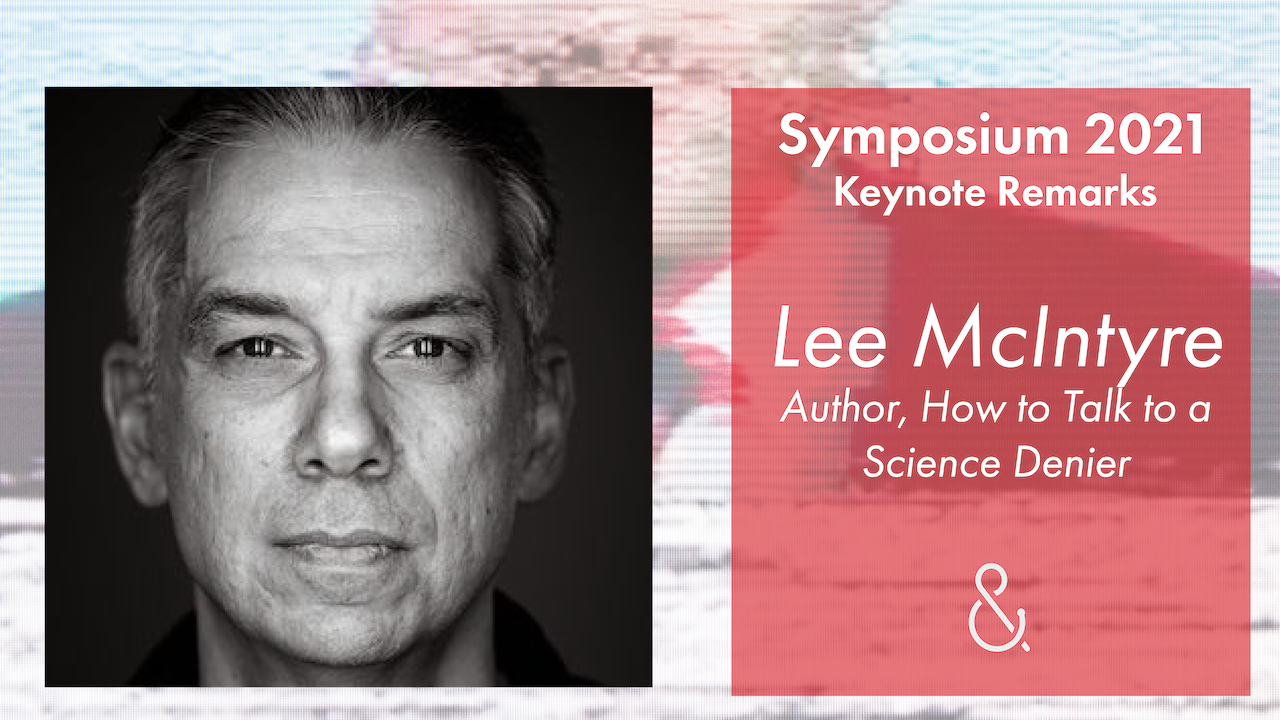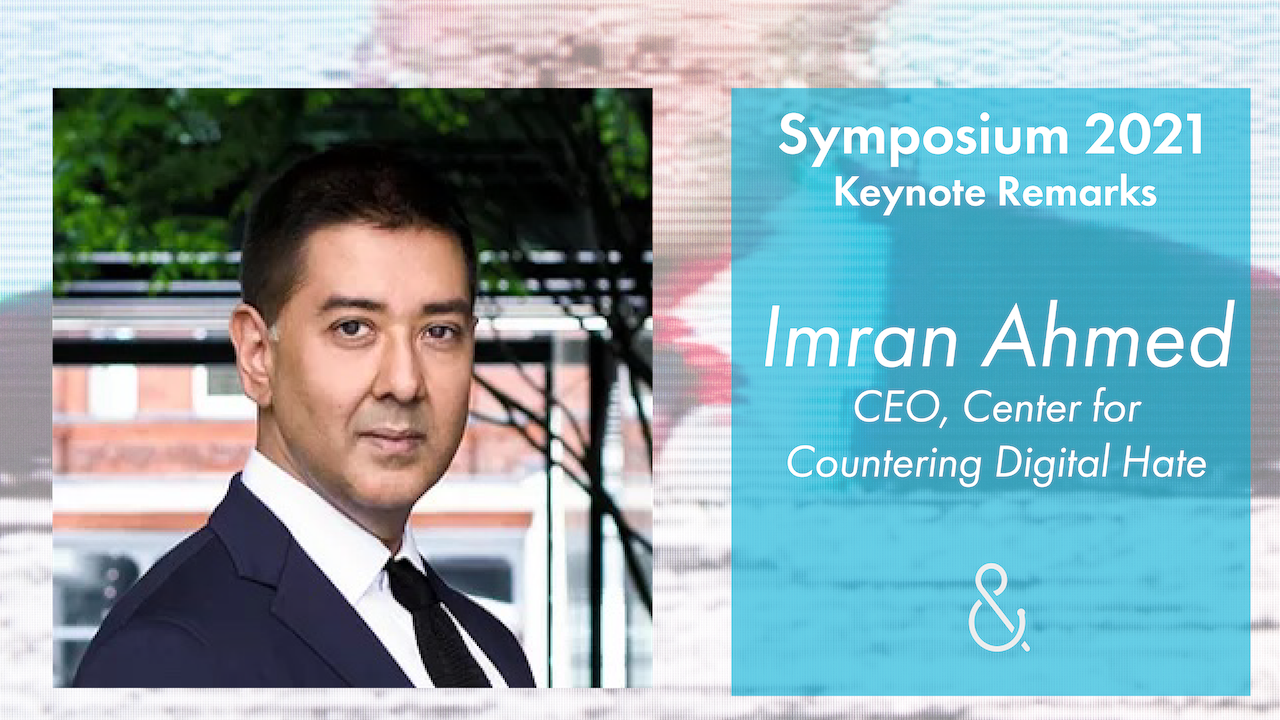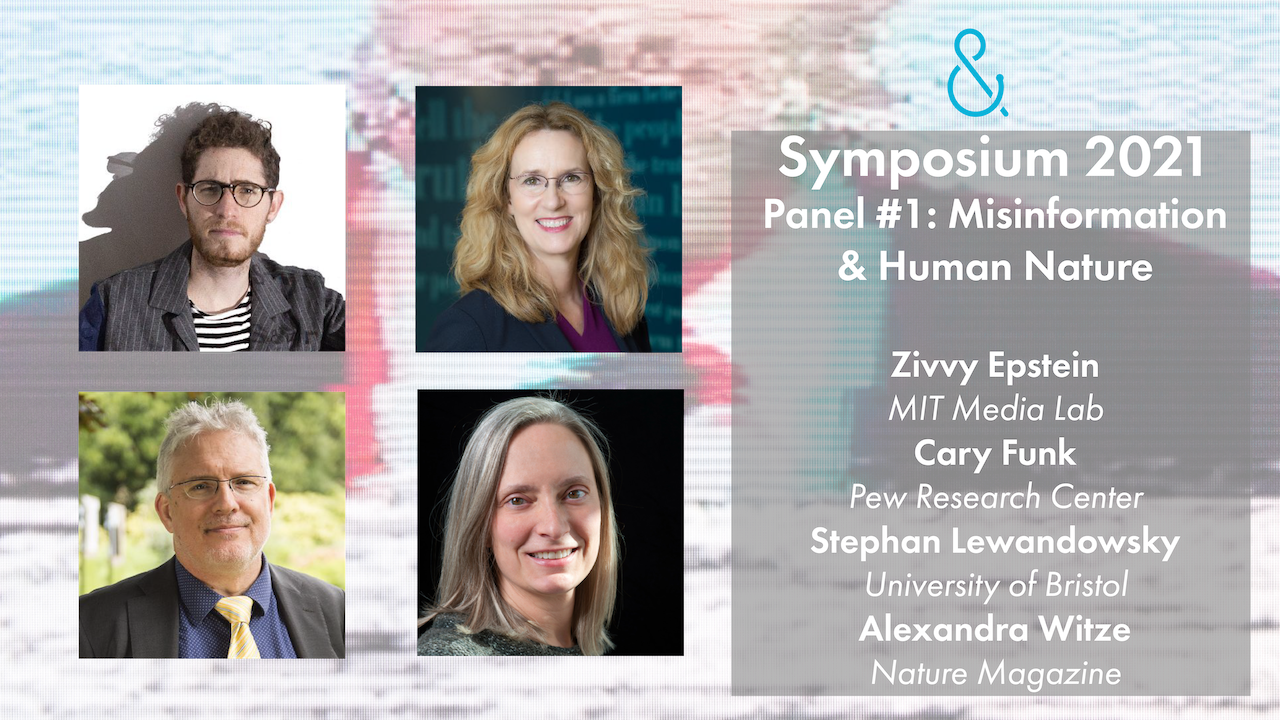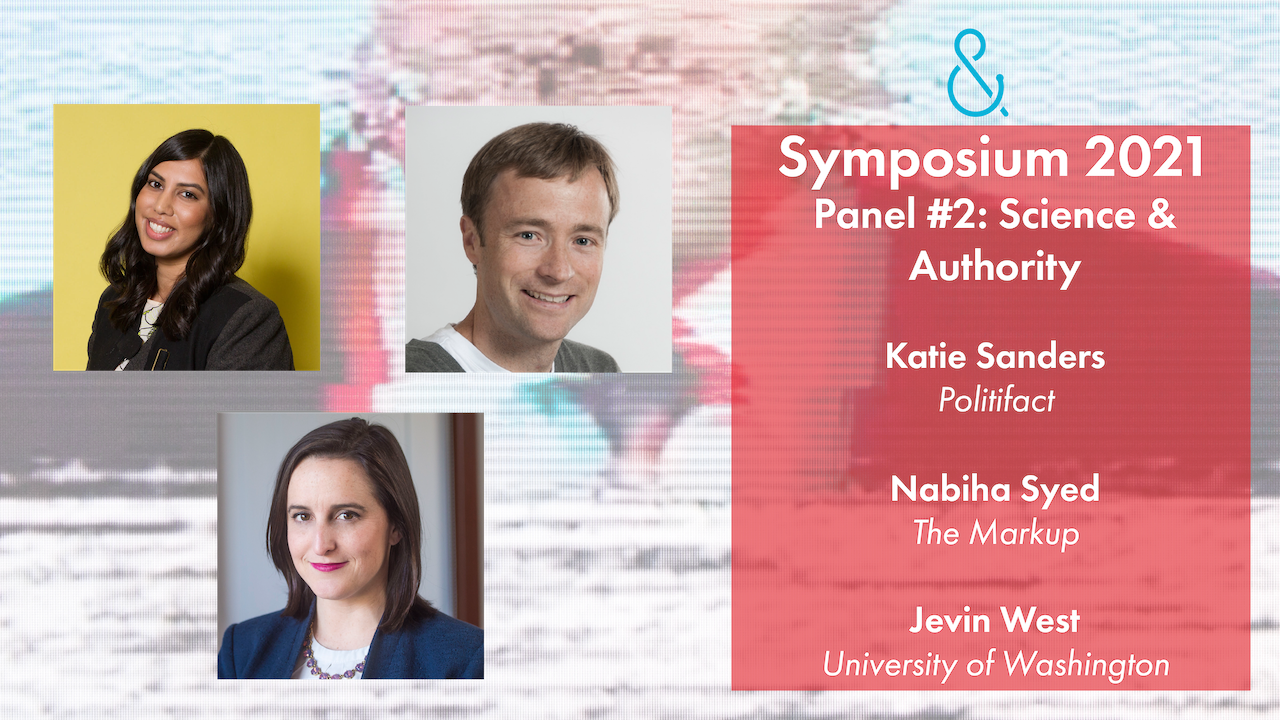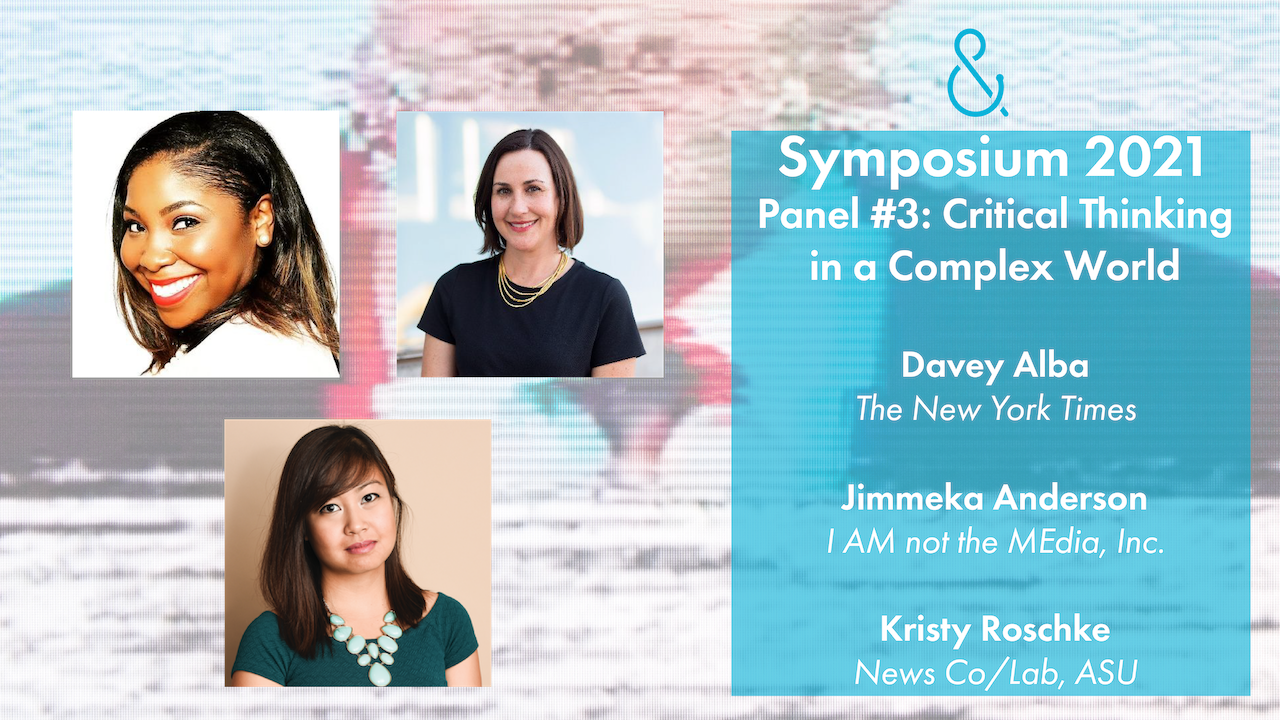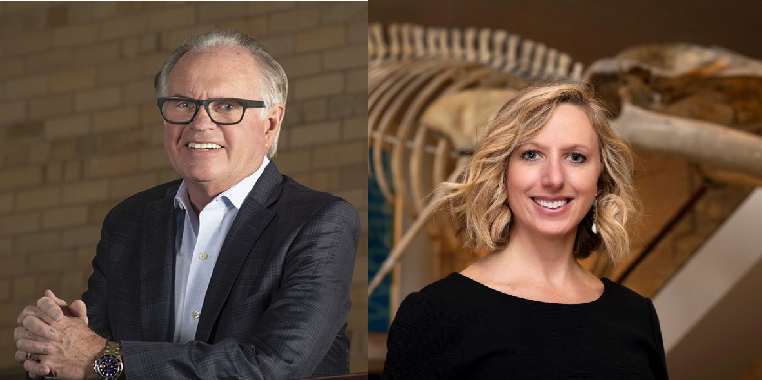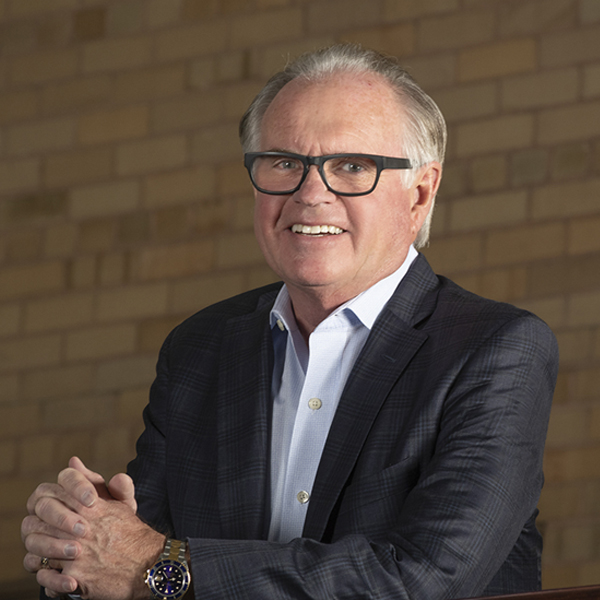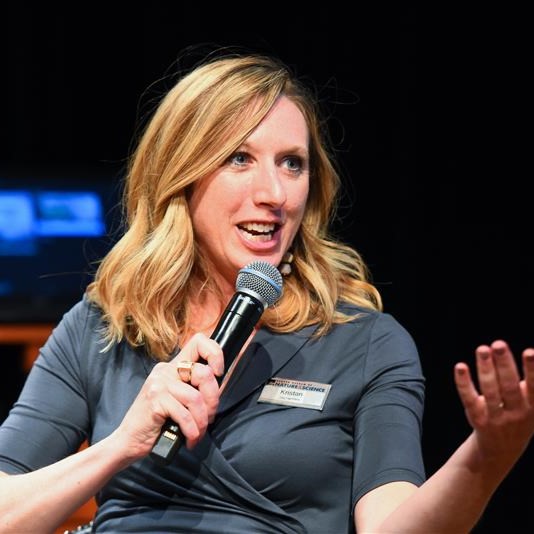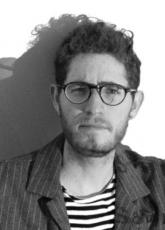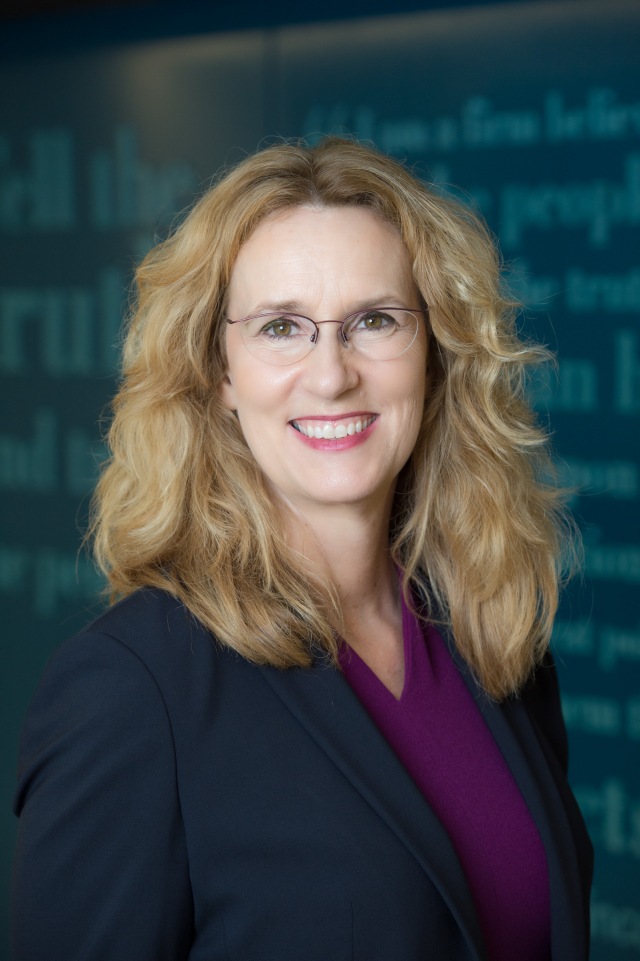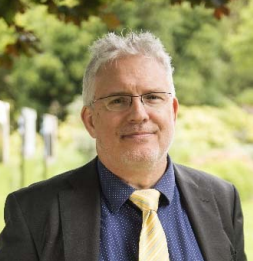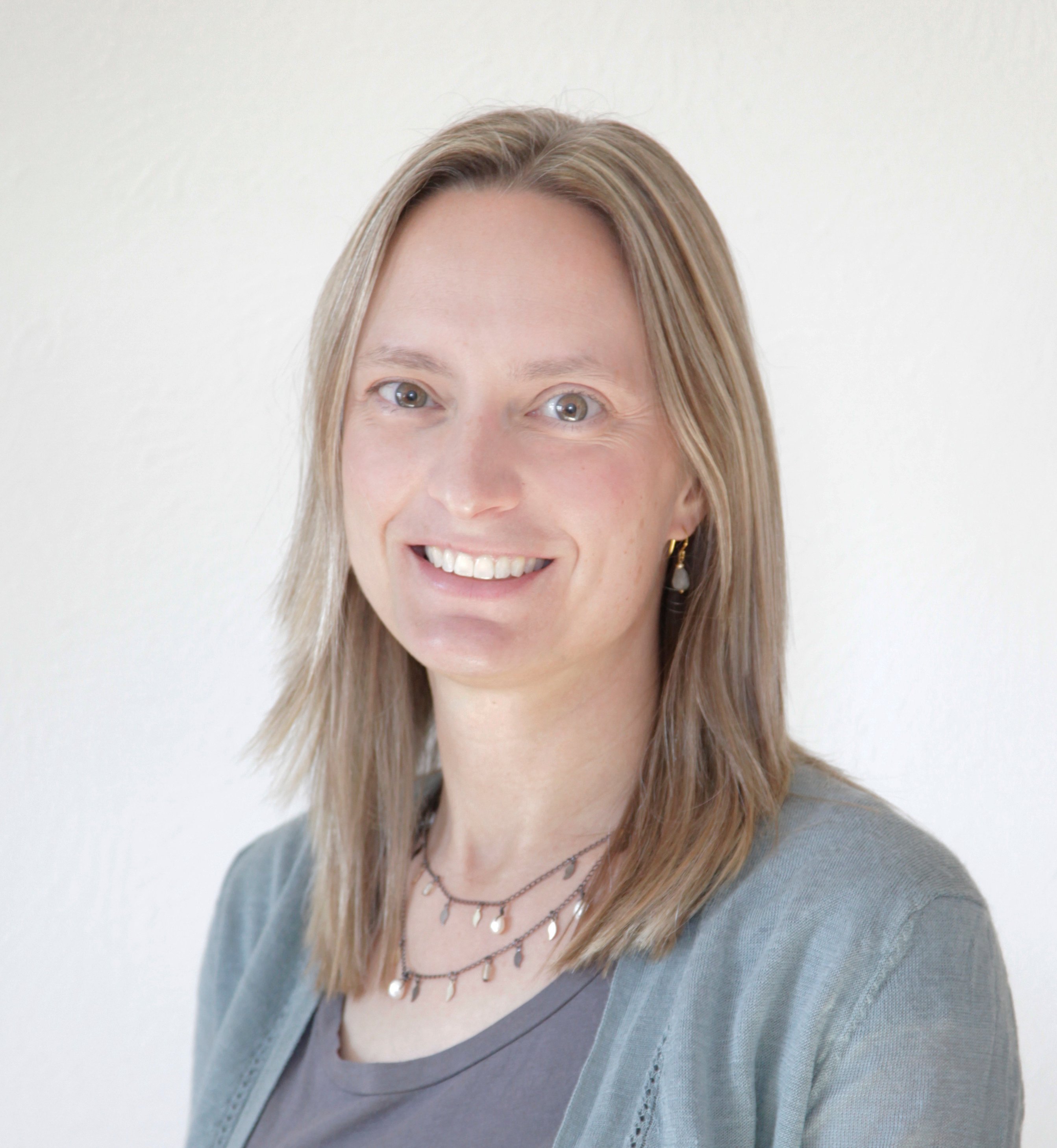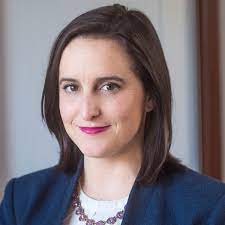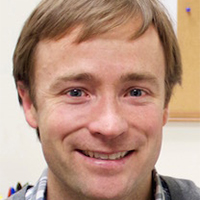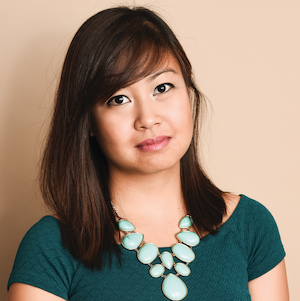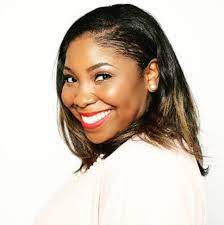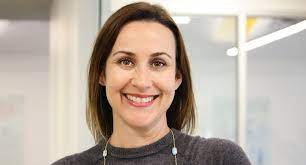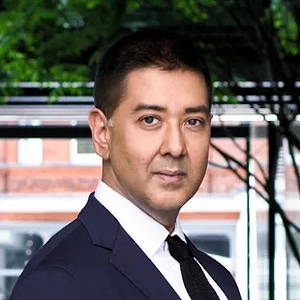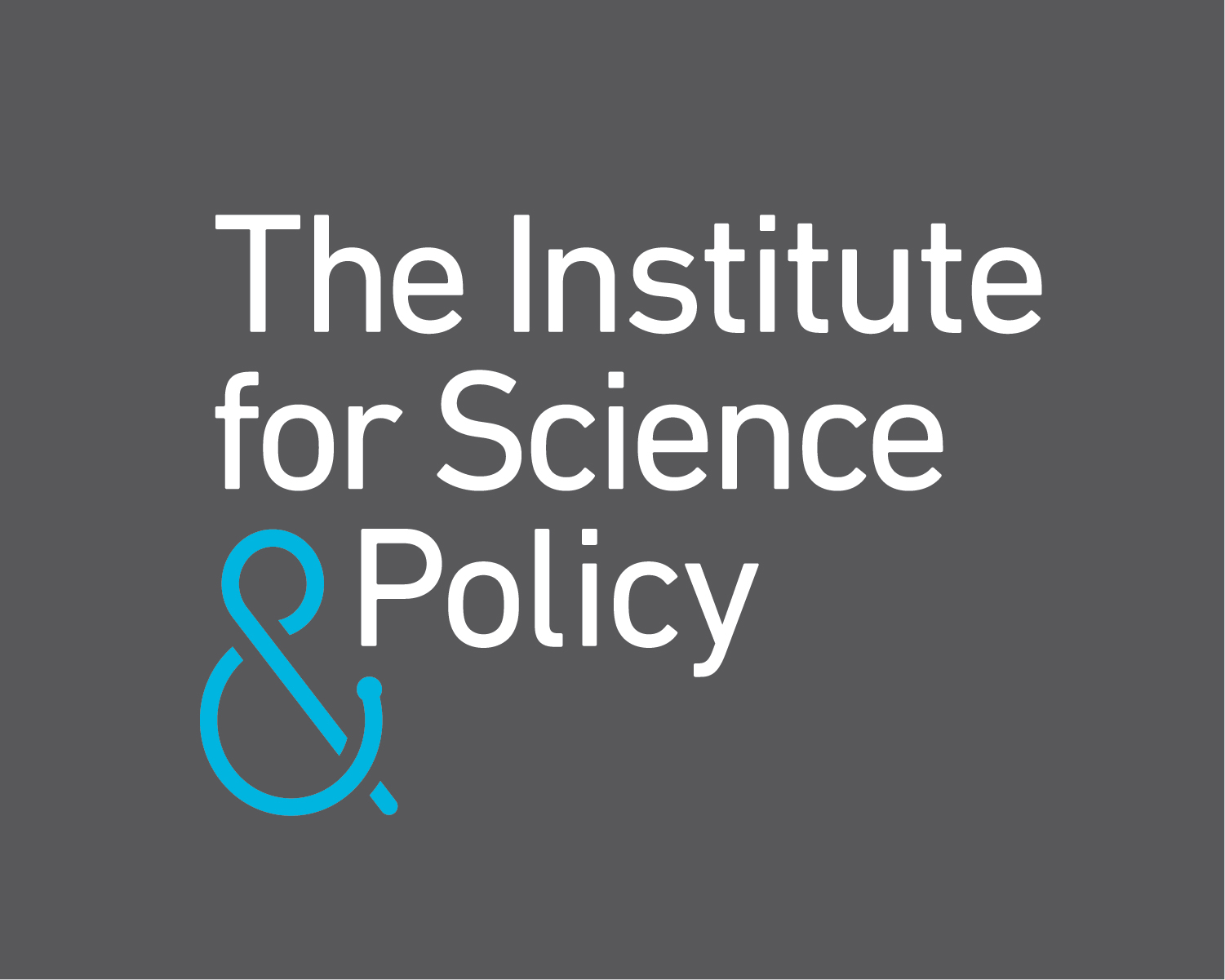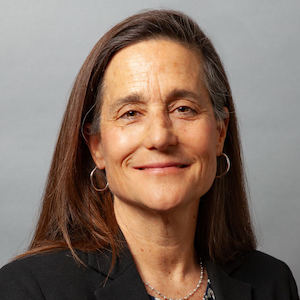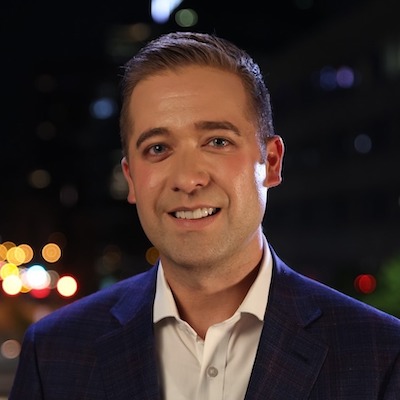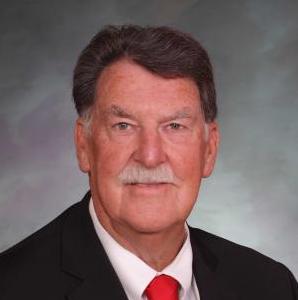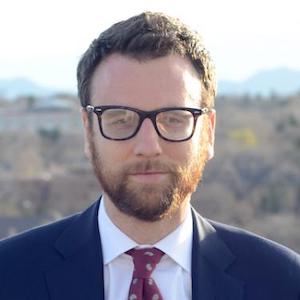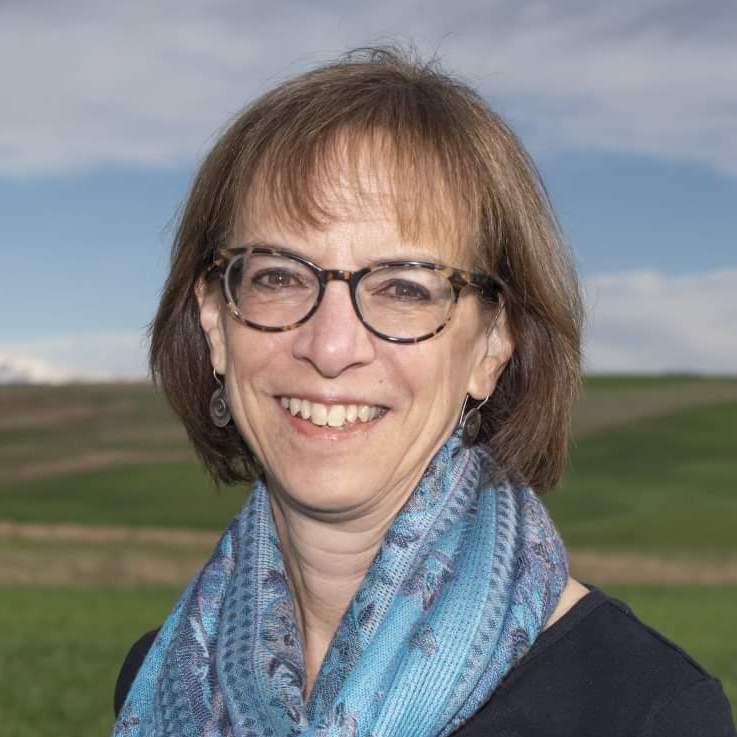Symposium 2021
Science in the Age of Misinformation
December 1 & 2, 2021
Session Recordings
Revisit all of this year's terrific panels and keynotes.
Imran Ahmed is the founding CEO of the Center for Countering Digital Hate. He is a recognized authority on the social and psychological dynamics of social media, as well as what goes wrong in those spaces, such as trolling, identity-based hate, misinformation, conspiracy theories, modern extremism and fake news.
Our panel of experts explores why humans are susceptible to misinformation: what is it about our nature, our society, our trust, that makes us vulnerable? Featuring Zivvy Epstein (MIT Media Lab), Cary Funk (Pew Research Center), Stephan Lewandowsky (University of Bristol), and moderated by Alexandra Witze (Nature Magazine)
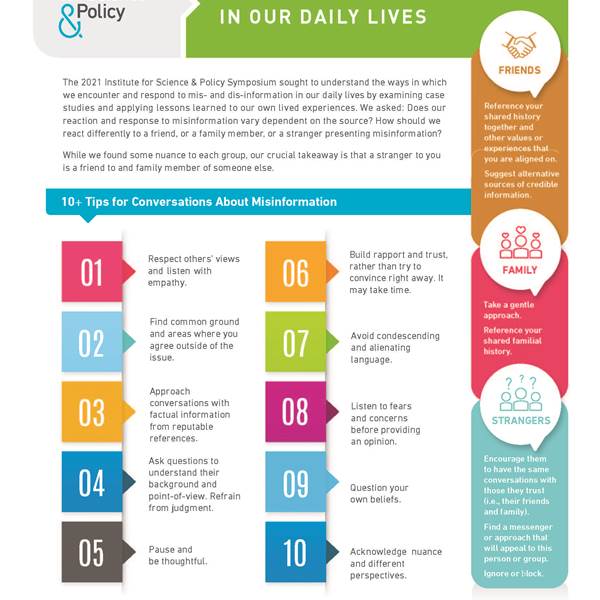
Workshop Recap: Discussing Misinformation in Your Own Life
This year's breakout session participants curated a primer on how to address misinformation with friends, family, or strangers.
DownloadAdditional Resources
A list of resources about misinformation recommended by this year's speakers and panelists.
Media Bias Chart by ad fontes media: Have you wondered about where your preferred media platform lands on a reliability and bias chart?
Influence: The Psychology of Persuasion: Rigorously researched and broken up into six universal principles, Dr. Robert Cialdini explains how to become a skilled persuader and to avoid being misled by persuasion.
The Social Dilemma: Available on YouTube and Netflix, The Social Dilemma confronts our fairly new reality that “never before have a handful of tech designers had such control over the way billions of us think, act, and live our lives.”
The COVID-19 Vaccine Communication Handbook: Along with Skeptical Science's number of resource handbooks, Stephan Lewandowsky wants equip you with the knowledge and tactics needed to have these conversations.
How to detect, resist, and counter the flood of fake news: Alexandra Witze reminds us that “although most people are concerned about misinformation, few know how to spot a deceitful post.”
Calling Bullshit: Written by Carl Bergstrom & Jevin West, Calling Bullshit text and course are aimed to teach you how to think critically about the data and models that constitute evidence in the social and natural sciences.
Developing an accuracy-prompt toolkit to reduce COVID-19 misinformation: Ziv Epstein partnered with Google and a number of other institutions to ask if an accuracy-prompt toolkit really can help stem the spread of misinformation on social media.
How to Talk to a Science Denier: The latest of a number of texts by Lee McIntyre. How to Talk to a Science Denier depicts real-life encounters with flat earthers and anti-vaxxers to answer the question: How do I talk to them about science?
I am not the media: Jimmeka Anderson is Founder & Executive Director of I am not the Media, a non-profit organization that focuses on media literacy in teens and young adults.
"On Bullshit," by Harry G. Frankfurt: Join moral philosopher Harry Frankfurt on a humorous venture exploring how those that pedal “bullshit” are more dangerous an enemy to the truth than those that lie.
Misinformation in and about science: Most looks into misinformation focus on media, but what about when the science is at stake? Jevin West and his co-author Carl Bergstrom discuss a number of facets to misinformation in the scientific enterprise. More from the Center for an Informed Public here.
The Markup: A nonprofit newsroom that investigates how powerful institutions are using technology to change our society.
"Effective strategies for rebutting science denialism in public discussions: Cornelia Betsch and Philip Schmidd writing in Nature Magazine
Five tropes of science denial reasoning
The Washington Post on talking to science deniers
The Wall Street Journal on Russian disinformation campaigns
"Merchants of Doubt," by Naomi Oreskes

Keynote Speaker
Lee McIntyre
Author, How to Talk to a Science Denier
Lee McIntyre is a Research Fellow at the Center for Philosophy and History of Science at Boston University and an Instructor in Ethics at Harvard Extension School. He holds a B.A. from Wesleyan University and a Ph.D. in Philosophy from the University of Michigan (Ann Arbor).McIntyre is the author of How to Talk to a Science Denier (MIT Press, 2021), Philosophy of Science (Routledge, 2019), The Sin Eater (Braveship, 2019), and more. His work has appeared venues such as the New York Times, Newsweek, Scientific American, the Boston Globe, the Chronicle of Higher Education, the New Statesman, the Times Higher Education Supplement, and the Humanist.
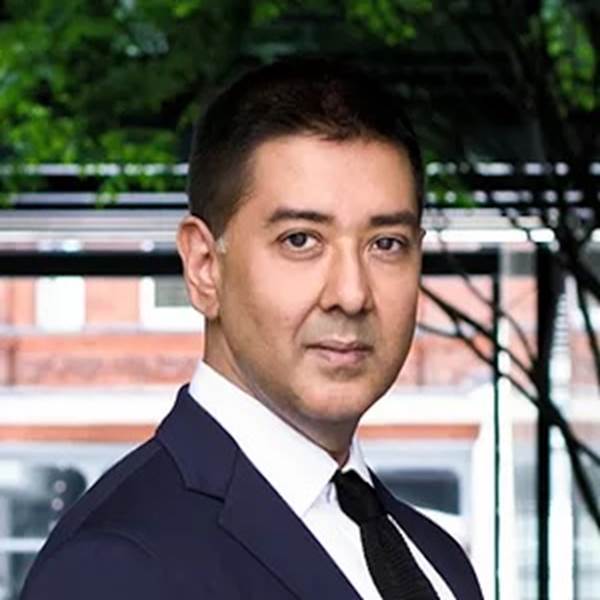
Keynote Speaker
Imran Ahmed
CEO, Center for Countering Digital Hate
Imran Ahmed is the founding CEO of the Center for Countering Digital Hate. He is a recognized authority on the social and psychological dynamics of social media, as well as what goes wrong in those spaces, such as trolling, identity-based hate, misinformation, conspiracy theories, modern extremism and fake news. He regularly features in the media as an expert in online malignant behaviour and how bad actors use digital spaces to harm others and benefit themselves. Imran is a trustee of the UK charity, Victim Support. He advises politicians in the US, UK, Europe and elsewhere on policy and legislation. Imran was raised in Manchester, England. He holds an MA in Social and Political Sciences from the University of Cambridge. Imran lives in Washington DC, and tweets at @imi_ahmed.
Agenda
All times Mountain Time
All sessions virtual except where noted
9:00 a.m.
Welcome Remarks
George Sparks, President/CEO of the Denver Museum of Nature and Science
Kristan Uhlenbrock, Executive Director, Institute for Science & Policy
9:15 a.m.
Keynote Remarks: Tackling Science Denialism
Lee McIntyre, Author and Research Fellow, Boston University Center for Philosophy and History of Science
10:00 a.m.
Break
10:15 a.m.
Panel: Our Human Nature
Understanding why misinformation and disinformation spread
Zivvy Epstein, PhD Student, Human Dynamics group at MIT Media Lab
Cary Funk, Director of science and society research, Pew Research Center
Stephan Lewandowsky, Professor, University of Bristol
Alexandra Witze, Freelance Science Journalist and Correspondent, Nature magazine
11:15 a.m.
Break
11:30 a.m.
Panel: Science and Authority
Misinformation's corrosive impacts
Katie Sanders, Managing Editor, PolitiFact
Nabiha Syed, President, The Markup
Jevin West, Assistant Professor in Information School, University of Washington
12:30 p.m.
Lunch Break
1:00 p.m.
Panel: Thinking critically in a complex world
Tools and awareness to navigate an information rich culture
Davey Alba, Technology Reporter, The New York Times
Jimmeka Anderson, Founder, I AM not the MEdia, Inc. / PhD student, University of North Carolina
Kristy Roschke, Managing Director of the News Co/Lab, Arizona State University
2:00 p.m.
Break
2:15 p.m.
Keynote Remarks: Countering Hate in Our Digital World
Imran Ahmed, CEO, Center for Countering Digital Hate
2:55 p.m.
Closing Remarks
Kristan Uhlenbrock, Executive Director, Institute for Science & Policy
3:00 p.m.
Virtual Networking
4:00 p.m.
Virtual Networking Ends / Break
5:15 p.m.
In-Person Evening Reception at the Denver Museum of Nature & Science
RSVP required. Proof of COVID-19 vaccination required for entry.
The Institute for Science and Policy
6:00 p.m.
In-Person Evening Panel: Misinformation's Effects on Policy & Decision-Making
RSVP required. Proof of COVID-19 vaccination required for entry.
Jeni Arndt, Mayor, City of Fort Collins
Kyle Clark, Anchor, 9NEWS
Don Coram, Colorado State Senator, District 6
Toby Hopp, Associate Professor, Advertising and Public Relations, University of Colorado Boulder
Claire Levy, County Commissioner, District 1
7:15 p.m.
Reception continues
8:30 p.m.
Adjourn
All times Mountain Time
Workshop Sessions: Building Resources for Countering Misinformation
8:30 a.m.
Virtual Coffee Hour & Networking
9:00 a.m.
Welcome and Day One Recap
George Sparks, President/CEO of the Denver Museum of Nature and Science
Kristan Uhlenbrock, Executive Director, Institute for Science & Policy
9:15 a.m.
Breakout Sessions
10:45 a.m.
Break
11:00 a.m.
Closing Remarks
The Institute for Science and Policy
11:30 a.m.
Adjourn
Symposium Preview: Thought Leaders Discuss Misinformation
In advance of the Institute's 2021 Symposium, we asked thought leaders to share their perspectives on misinformation's harmful effects on society and offer some guidance on what we as citizens can do about it.
Featuring words from:
• Stewart Vanderwilt, President & CEO, Colorado Public Radio
• Laura Frank, Executive Director, COLab, the Colorado News Collaborative
• Claire Wardle, Co-Founder and Executive Director, First Draft
• Tamaan Osbourne-Roberts, MD, Iora Health Inc.
• Jeni Arndt, Mayor of Fort Collins
• Chuck Plunkett, Director, CU News Corps
• Allegra "Happy" Haynes, Executive Director, Denver Parks & Recreation

